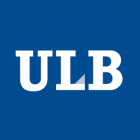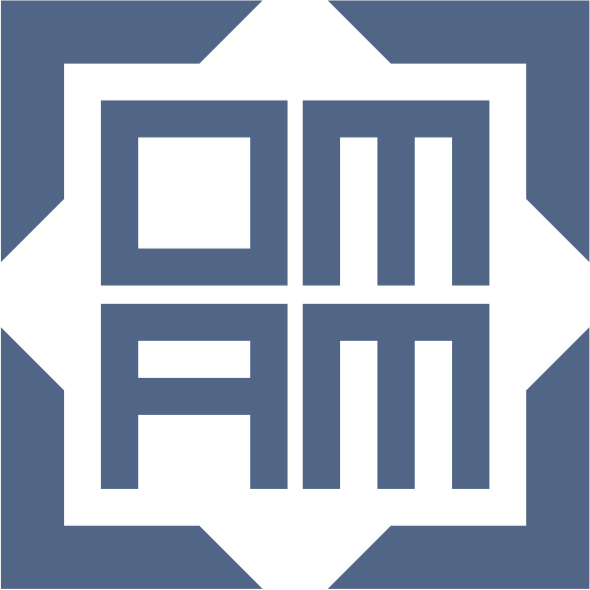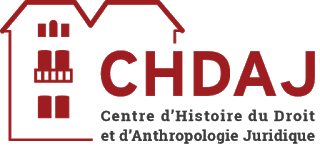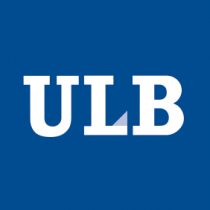Maison des Sciences Humaines (MSH-ULB)
Université Libre de Bruxelles


Description
The House of the Humanities and Social Sciences of the Université Libre de Bruxelles (MSH-ULB, Brussels, Belgium) brings together 10 research teams, including: the Archaeology and Heritage Research Centre, the Observatory of Arab and Muslim Worlds, the Interdisciplinary Centre of Religious and Secular Studies, the Interdisciplinary Research Centre on Gender, Equality and Sexuality, and the Centre of Law History and Legal Anthropology. All of the MSH-ULB teams pursue interdisciplinary research.
Role in SfaxForward
Within the context of SfaxForward, MSH-ULB will oversee in particular those aspects of the project concerned with “Heritage and Technologies” (Work Package "Collaborative Workshops"). The centre will notably share and exploit its expertise vis-à-vis virtual 3D imagery (panorama.ulb.ac.be), a competence at the heart of interdisciplinary and participatory Heritage sciences. The diversity of its members’ competences and skills will also allow MSH-ULB to participate in other aspects of the project. The MSH-ULB will coordinate communication and dissemination activities, as well as contributing to capacity-building in the field of European Project Management, by co-training the research manager appointed by its Tunisian counterpart.
Involved Research Units

CReA-Heritage federates all the research programmes of the Université libre de Bruxelles in the fields of archaeology and heritage, both in Belgium and abroad. It ensures the practical training of students in field archaeology and is the privileged interlocutor of the public authorities in charge of heritage.

The Observatory of Arab and Muslim Worlds (OMAM) is a transdisciplinary study entity that is part of the Maison des Sciences Humaines. OMAM's mission is research training, reception and dissemination of knowledge. The fields of this entity cover a vast geographical area, ranging from the Mediterranean Maghreb to the Mashreq (including Turkey and Israel), Muslim sub-Saharan Africa (notably Sudan, Chad, Mali and Mauritania) and the Persian Gulf (Iran and the Gulf Monarchies).

The Centre for the History of Law and Legal Anthropology is one of the research centres of the Faculty of Law and Criminology of the Université libre de Bruxelles. Its members are active in two areas: the history of law and justice and legal anthropology. Through these two fields, they favour a study of law and justice using empirical research methods and an interdisciplinary approach.
Key person
Sebastien Clerbois (M) is a full-time professor at ULB and Director of CReA-Patrimoine, which federates all ULB research programmes within the fields of archaeology and heritage, both in Belgium and abroad. He oversees students’ practical training in field archaeology and serves as a dedicated contact for the public authorities in charge of heritage.
Julien Pieret (M) is a full-time professor and Director of ULB’s Public Law Centre. He holds a licence degree in law (ULB, 2000), a specialized licence in international public law (ULB, 2002) and a licence approfondie in legal theory (FUSL, 2006). His doctoral thesis focused on the jurisprudence of the European Court of Human Rights concerning the protection of physical integrity (ULB, 2010), and he has also taught the course on “Law and social movements” at the Université du Québec à Montréal (UQAM). Furthermore, he is an ardent activist intimately involved in Brussels’ socio- cultural scene (Human Rights League, Radio Panik, Youth Rights Service and Social Work Watchdog Committee).
Corinne Torrekens (F) holds a doctorate in political and social sciences and is a full-time professor at ULB. Her studies focus on Islam, its integration into Western societies and processes of radicalization. Member of OMAM (Observatory of Arab and Muslim Worlds) of the Université libre de Bruxelles, she also directs DiverCity, an expert consultancy on Islam, youth, identity issues, cultural and religious practices, ethnicity, integration policies, discrimination, political participation and migration.
Barbara Truffin (F) is a full-time professor at the Centre of Law History and Legal Anthropology (CHDAJ) of the Université libre de Bruxelles. Her research seeks to identify and analyse the challenges posed by family conflicts and approaches to dealing with such disputes within the context of migration. She has carried out legal ethnographic surveys among justices of the peace within cantons characterized by great cultural and migrant diversity, so as to determine how the civil justice system apprehends and responds to this family context marked by cultural and socio-economic differences.
Vincent Chapaux (M) is Research Manager of the Maison des Sciences Humaines of the Université libre de Bruxelles (ULB). He holds a PhD in social and political sciences and a Master’s degree in international law, and has served as a Lecturer in international law at both the Université libre de Bruxelles and the University of Ottawa. Since 2016, he has been in charge of supporting the creation of interdisciplinary projects in the social sciences and humanities.
Vanessa Gemis (F) holds a PhD in Philosophy and Literature (ULB) and postgraduate degrees in “History, Culture and Society” (ULB) and “Cultural Management” (ULB). She spent 2011 as a postdoctoral researcher at Columbia University (New York), at the Institute for Research on Women and Gender. She is currently working at the ULB European Liaison Office (Research Department), as Scientific Advisor for the Social Sciences, Arts and Humanities and Project Manager for EU and International Projects.
Founded in 1834, ULB (www.ulb.be) boasts a long tradition of excellence in research, with four scientific Nobel Prizes, one Fields Medal, three Wolf Prizes and two Marie Curie Excellence Awards. It is one of the largest and best research universities in Belgium, with a student population of 24,000 and with almost 1,600 PhDs in progress, in partnership with 20 doctoral schools.
ULB has developed extensive expertise in the management of European research programmes; for instance, the university has hosted 27 ERC grant recipients and 17 individual Marie-Curie researchers. In addition, ULB is ranked among the world’s 200 best universities. The university therefore has everything to offer a consortium seeking to transfer expertise and skills, with regards to both scientific excellence and good research practices (notably for project management).
In the field of cultural heritage, ULB is the current recipient of two EOS grants (The Excellence of Science – Belgian Scientific Grant), one regarding the history of cremation and the other on making of Egyptology. It has also step up Panorama, a collaborative virtual imaging platform http://panorama.ulb.ac.be/. As to the link between law and society, ULB is currently talking part in a ARC (Action de Recherche Concertée) with other Belgian universities on the use of law to change societies (http://arc-strategic-litigation.ulb.ac.be/).

